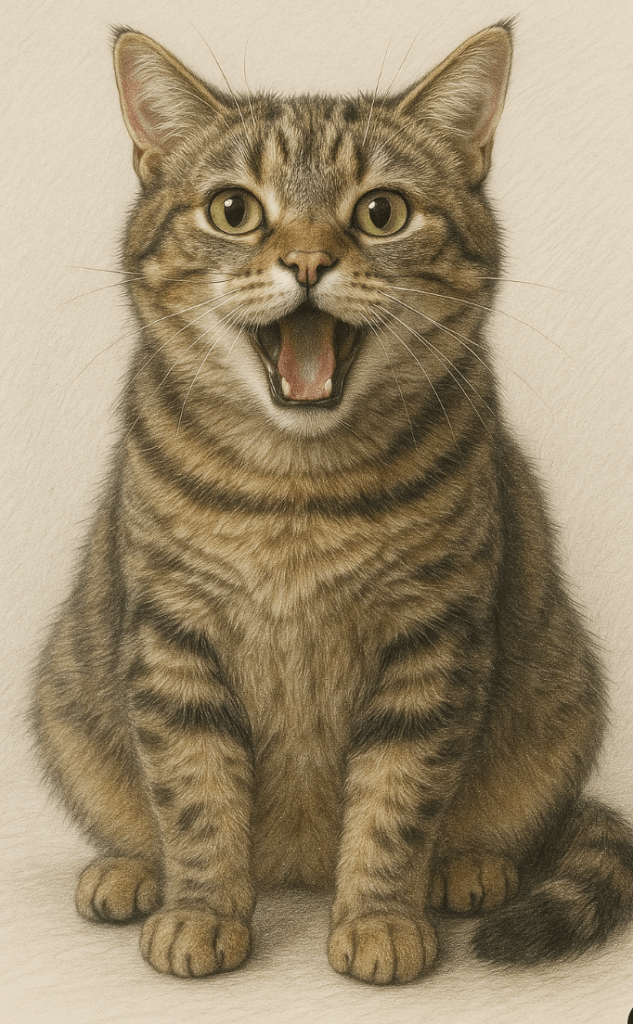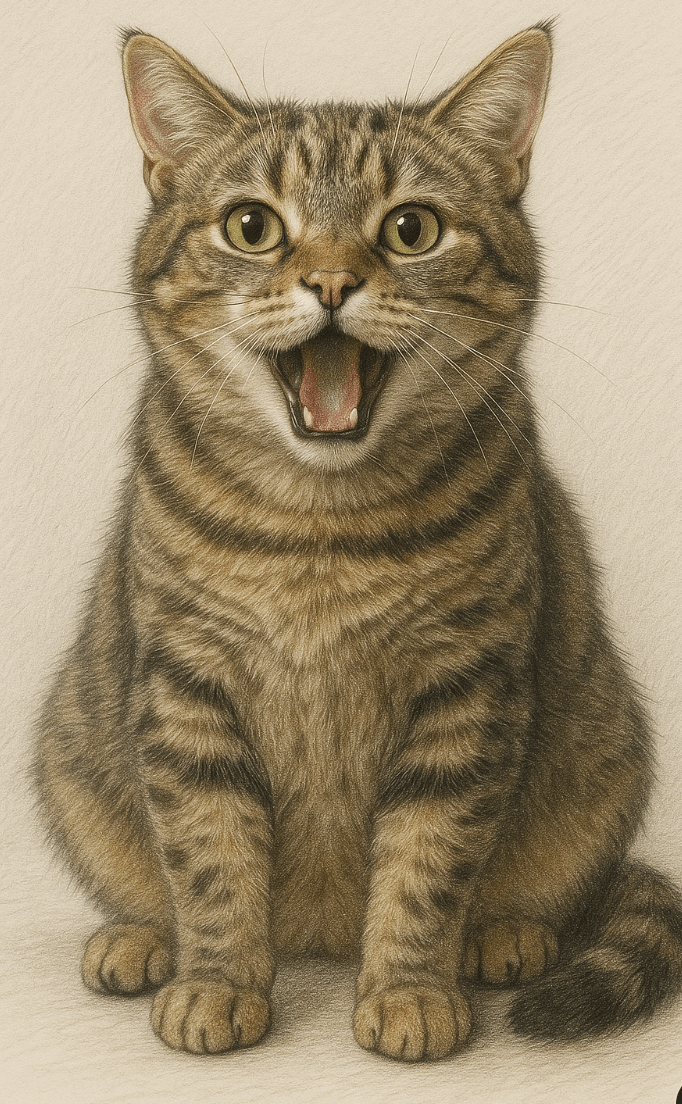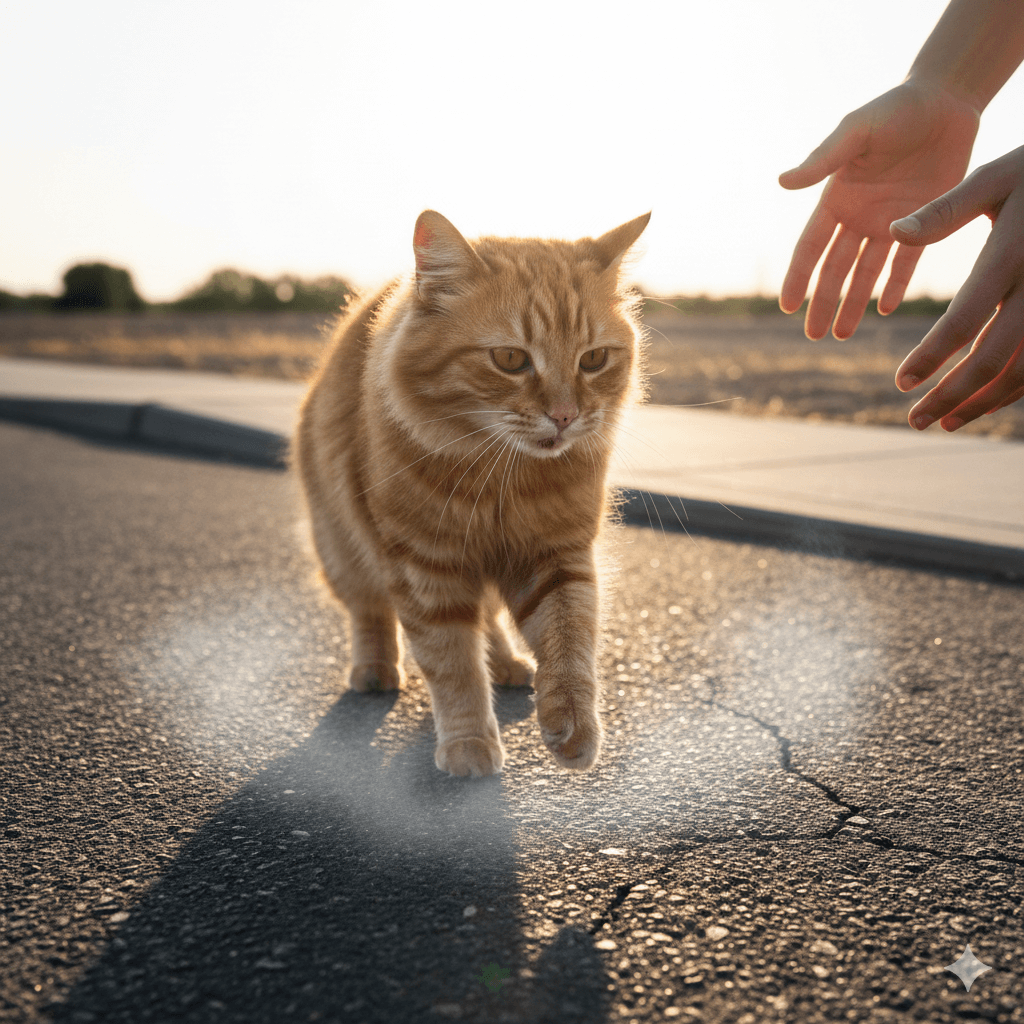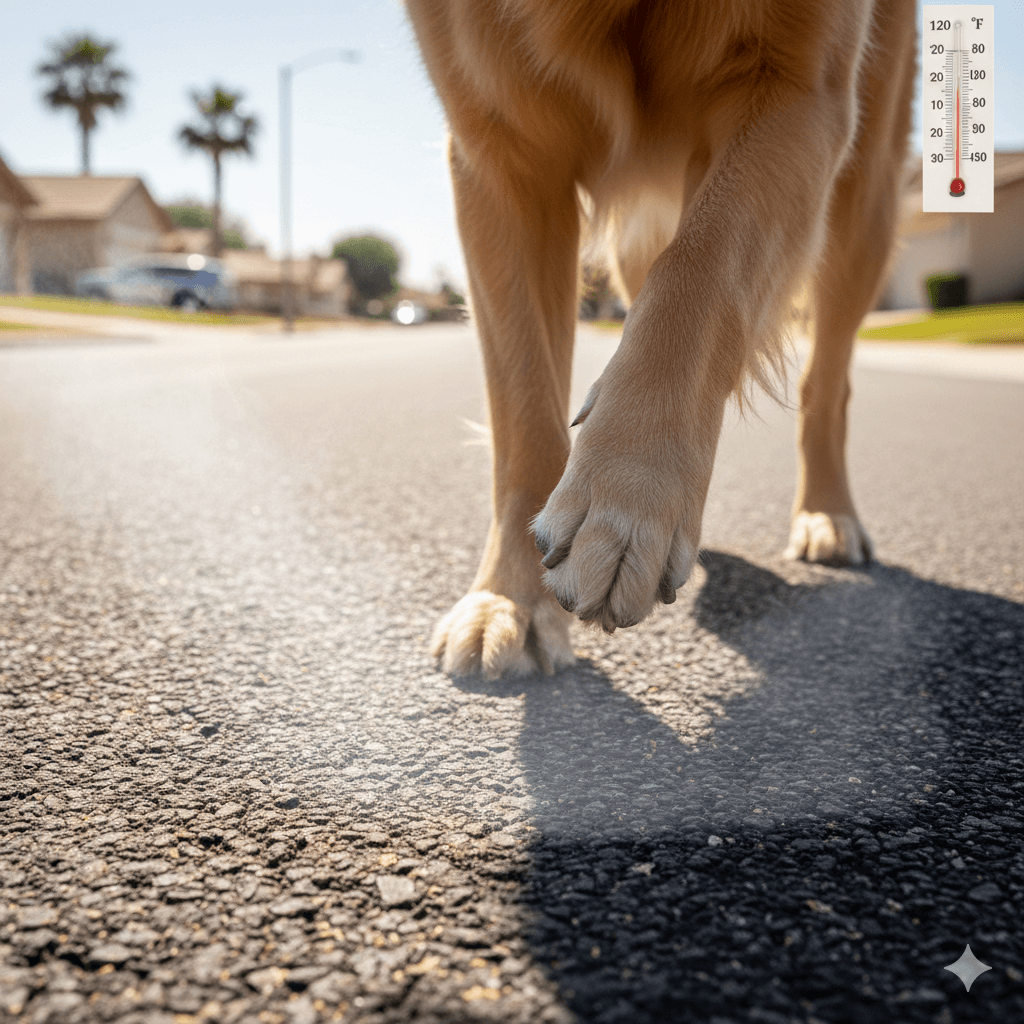Why Is My Cat Sitting With Its Mouth Open?
Have you ever noticed your cat sitting with its mouth slightly open, looking like it’s caught mid-thought or sniffing the air? While this behavior might seem unusual at first glance, it’s actually quite common among felines. Known as the “Flehmen response,” this posture serves a specific purpose in how cats process scents and interpret their environment. However, there are other reasons why your cat might sit with its mouth open, ranging from curiosity to potential health concerns. In this blog post, we’ll explore the fascinating science behind this behavior, what it means for your cat’s well-being, and when you should consult a veterinarian.
Understanding the Flehmen Response
When your cat sits with its mouth open, it may be engaging in the Flehmen response—a natural behavior that helps them analyze scents more effectively. This reaction is triggered by certain odors and plays a key role in their sensory perception.
What Happens During the Flehmen Response:
When a cat opens its mouth slightly, it exposes the vomeronasal organ (also called the Jacobson’s organ) located on the roof of its mouth. This organ detects pheromones and other chemical signals.Common Triggers for the Flehmen Response:
Strong or unfamiliar scents, such as those from other animals, urine, or even household cleaning products, can prompt this behavior.Why Cats Use It:
The Flehmen response allows cats to gather detailed information about their surroundings, helping them identify mates, rivals, or changes in their territory.Body Language Cues:
Alongside the open-mouth posture, you might notice your cat wrinkling its nose or curling its upper lip slightly while analyzing a scent.Is It Normal?
Yes, the Flehmen response is completely normal and harmless. It’s simply your cat’s way of understanding the world through smell.
If your cat occasionally sits with its mouth open while sniffing something intriguing, rest assured that this behavior is part of their natural instincts.
Other Reasons Why Cats Sit With Their Mouths Open
While the Flehmen response explains many instances of mouth-open behavior, there are other possible explanations worth considering. These range from harmless quirks to signs of underlying issues.
Curiosity About New Scents:
Cats are naturally curious creatures, and an open mouth might indicate they’re trying to investigate an interesting or unfamiliar smell.Temperature Regulation:
On hot days, some cats may pant lightly or leave their mouths slightly open to cool down, similar to dogs.Respiratory Issues:
Persistent mouth-breathing could signal breathing difficulties caused by conditions like asthma, allergies, or infections.Oral Pain or Discomfort:
Dental problems, such as gum disease or toothaches, might cause a cat to hold its mouth open due to discomfort.Stress or Anxiety:
Cats sometimes exhibit unusual behaviors, including sitting with their mouths open, when feeling anxious or overwhelmed.
Understanding these possibilities helps you determine whether your cat’s behavior is benign or warrants further investigation.
Check this guide 👉Understanding Why Cats Swish Their Tails: Best 7 Expert Tips
Check this guide 👉Why Did My Cat Pee in My Suitcase? Best 7 Expert Tips!
Check this guide 👉Why Do Cats Bite Other Cats Bums? Best 7 Expert Tips!

Normal Causes of Mouth-Open Behavior | Potential Health Concerns |
|---|---|
Flehmen response to scents | Respiratory infections or blockages |
Curiosity about new odors | Asthma or difficulty breathing |
Temperature regulation | Dental issues like gingivitis |
Playful or relaxed posture | Oral injuries or abscesses |
Investigating unfamiliar environments | Stress-induced behavioral changes |
How to Differentiate Between Normal and Abnormal Behavior
It’s important to observe your cat closely to distinguish between harmless behaviors and signs of trouble. Here are some tips to help you assess whether your cat’s mouth-open posture is cause for concern.
Frequency of the Behavior:
Occasional mouth-opening is usually fine, but frequent or prolonged episodes may indicate an issue.Accompanying Symptoms:
Look for additional signs like coughing, sneezing, drooling, or lethargy, which could point to health problems.Environmental Context:
Consider recent changes in your home, such as new pets, scented candles, or cleaning products, that might trigger curiosity or stress.Breathing Patterns:
Notice if your cat seems to struggle to breathe or makes unusual noises while keeping its mouth open.Veterinary Evaluation:
If you’re unsure about the cause, schedule a check-up with your vet to rule out medical conditions.
By paying attention to these factors, you can better understand your cat’s needs and ensure their continued well-being.
Tips for Supporting Your Cat’s Comfort and Health
Whether your cat’s mouth-open behavior is normal or linked to a health concern, taking proactive steps can enhance their quality of life. Here are some practical suggestions to support your feline friend.
Provide Enrichment Opportunities:
Offer toys, scratching posts, and interactive games to keep your cat mentally stimulated and reduce stress-related behaviors.Maintain Good Dental Hygiene:
Regularly brush your cat’s teeth and schedule annual dental check-ups to prevent oral health issues.Monitor Environmental Changes:
Introduce new scents or objects gradually to avoid overwhelming your cat’s sensitive senses.Keep Cool Indoors:
Ensure your home stays at a comfortable temperature to minimize panting or overheating.Consult Your Veterinarian Regularly:
Routine wellness exams help detect early signs of respiratory or dental problems before they escalate.
These tips promote a happy, healthy lifestyle for your cat while addressing any potential triggers of their mouth-open behavior.
Signs That Your Cat May Need Veterinary Attention
While occasional mouth-open behavior is typically harmless, certain signs indicate that professional care is necessary. Be vigilant for these red flags.
Labored Breathing:
If your cat struggles to breathe or takes rapid, shallow breaths, seek veterinary assistance immediately.Excessive Drooling:
Unusual drooling could signal oral pain or irritation requiring treatment.Lethargy or Loss of Appetite:
A sudden lack of energy or refusal to eat may point to serious health issues.Unexplained Weight Loss:
Significant weight loss alongside mouth-related behaviors should not be ignored.Swelling Around the Face or Jaw:
Visible swelling could indicate an abscess, infection, or injury needing prompt attention.
Recognizing these symptoms early ensures timely intervention and peace of mind.
Ways to Create a Calm Environment for Your Cat
A calm and stable environment can reduce stress-related behaviors, including sitting with the mouth open. Try these strategies to foster tranquility.
Establish a Routine:
Consistent feeding, play, and sleep schedules help cats feel secure and less anxious.Offer Safe Spaces:
Provide cozy hiding spots, such as enclosed beds or elevated perches, where your cat can retreat when feeling overwhelmed.Limit Loud Noises:
Minimize sudden or loud sounds that might startle your cat, such as vacuum cleaners or loud music.Use Calming Products:
Pheromone diffusers or sprays can create a soothing atmosphere and alleviate stress.Spend Quality Time Together:
Engage in regular bonding activities, like gentle petting or interactive play, to strengthen your relationship.
A peaceful home environment supports your cat’s emotional and physical health.
Fun Facts About Feline Senses and Behavior
Cats’ incredible sensory abilities often underlie their unique behaviors, including sitting with their mouths open. Here are some intriguing facts to deepen your appreciation for your furry friend.
Superior Sense of Smell:
Cats have up to 200 million scent receptors, making their sense of smell far superior to humans’.Unique Vomeronasal Organ:
The Jacobson’s organ allows cats to detect subtle chemical cues undetectable by humans, enhancing their social and territorial awareness.Expressive Facial Features:
A cat’s facial expressions, including the Flehmen response, reveal much about their mood and intentions.Innate Curiosity:
Cats are naturally inquisitive, driven by their keen senses to explore and investigate their surroundings.Communication Through Behavior:
Many feline behaviors, like sitting with the mouth open, serve as forms of non-verbal communication with humans and other animals.
Learning these fun facts enriches your understanding of your cat’s fascinating nature and strengthens your connection with them.
Frequently Asked Questions About Cats Sitting With Their Mouths Open
Is it normal for my cat to sit with its mouth open?
Yes, it’s often normal, especially during the Flehmen response or when investigating scents. However, persistent mouth-breathing should be evaluated by a vet.
Why does my cat make a funny face when sitting with its mouth open?
The “funny face” is part of the Flehmen response, where your cat analyzes scents using its vomeronasal organ.
Can stress cause my cat to sit with its mouth open?
Yes, anxiety or stress can lead to unusual behaviors, including holding the mouth open for extended periods.
Should I worry if my cat pants after exercise?
Light panting after vigorous play is normal, but heavy or labored breathing requires immediate veterinary attention.
How can I tell if my cat has dental pain?
Signs include drooling, bad breath, difficulty eating, pawing at the mouth, or reluctance to chew on one side of the mouth.
Embracing Your Cat’s Unique Behaviors
Cats are endlessly fascinating creatures, and their quirky behaviors—like sitting with their mouths open—often have logical explanations rooted in biology or instinct. Whether it’s the Flehmen response, curiosity, or a sign of an underlying issue, understanding your cat’s actions deepens your bond and ensures their well-being. By staying observant, providing proper care, and consulting professionals when needed, you can support your feline companion in living a happy, healthy life. So next time you catch your cat in this peculiar pose, take a moment to appreciate the wonder of their intricate world!
Newfoundland Dog Personality: Best 7 Expert Tips! – Discover the gentle, loyal, and protective nature of this giant breed perfect for families.
Can Hot Pavement Burn Your Cats Paws? Best 7 Expert Tips! – Learn how to protect your cat’s paws from hot surfaces and prevent painful burns this summer.
Can Hot Pavement Burn Your Dogs Paws? Best 7 Expert Tips! – Learn how to protect your dog’s paws from hot surfaces and ensure safe summer walks.
Irish Wolfhound Size: Best 7 Expert Tips! – Discover the ideal height, weight, and care tips for this majestic giant breed. Learn how to manage their impressive stature responsibly.





